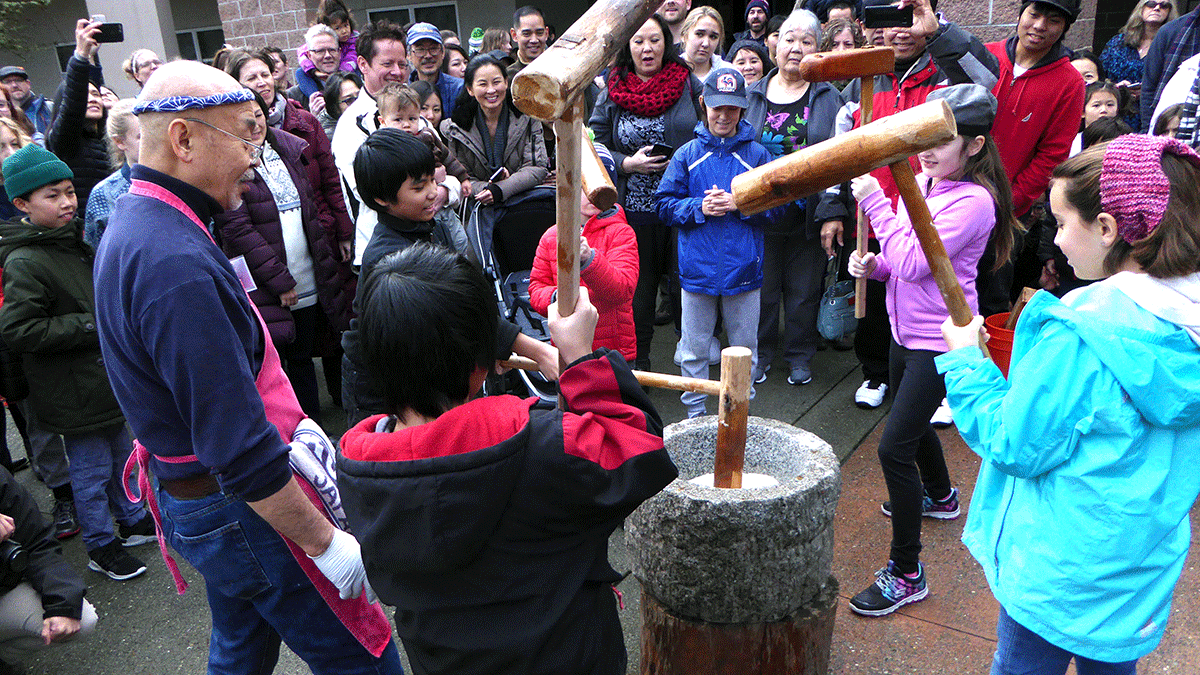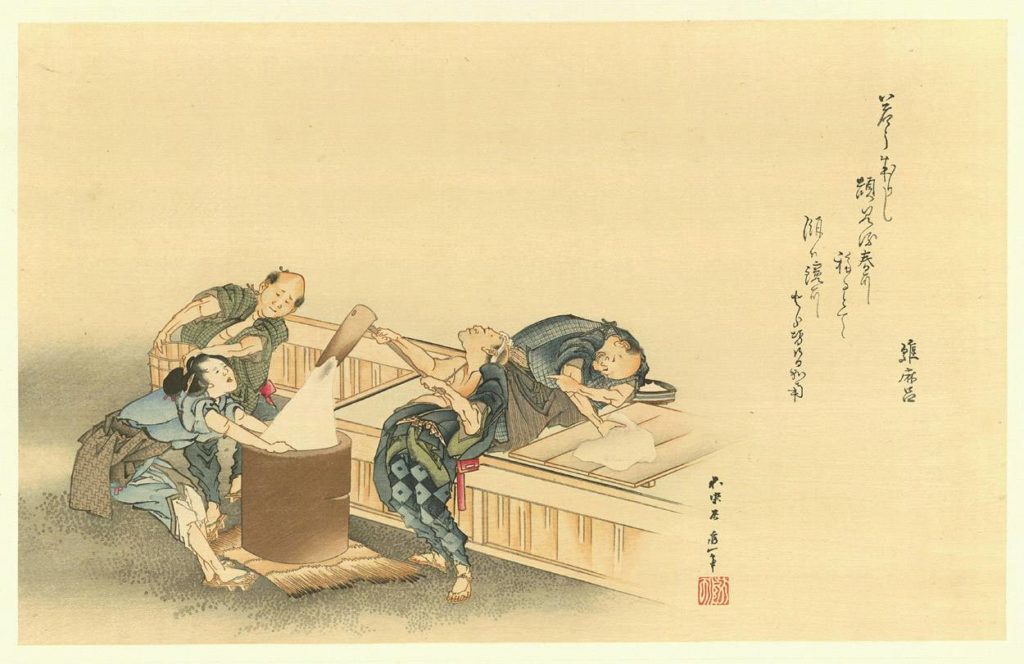I got crazy for mochi on a trip to Hawaii. I’m pretty sure Happy Hearts mochi was my introduction and specifically, it was the chocolate haupia (coconut pudding) that sent me round the bend. Mochi became my go to treat on all my trips to Hawaii. I ate mochi from Two Ladies Kitchen for dinner one night when I was staying in Hilo, and more than once I’ve snarfed down one piece over my limit after visiting Kansai Yamato. No visit to Hawaii is complete without a belly full of pillowy fresh mochi. If you don’t ink a mochi binge into your island vacation, you’re doing it wrong.
Our offerings in Seattle are thin in comparison to Hawaii. We can get mochi, but it’s rarely got that fresh puffy quality. I’m not sure why this is; mochi is a Japanese treat and we do have a significant Japanese population here. There was a mochi shop on Jackson, not far from the heart of where what was once called Japantown, but it didn’t last long. You can get mochi at our big Asian supermarket, Uwajimaya, but it’s not the same when it’s been sitting on the shelf for 48 hours. I’ve long awaited the mochi craze to follow that of cupcakes and donuts and cronuts and whatever, but it hasn’t happened.

Mochi is a traditionally a Japanese New Year’s treat, maybe eating mochi is supposed to give you strong teeth and bones, maybe it’s supposed to give you good fortune. I also read that pounding the mallet disperses any badness left over from the previous year. At the mochi tsuki — mochi pounding ceremony — I attended, the work was shared, anyone who wanted to swing a mallet and help pound the sweet rice into a chewy cloud of dough was welcome to do so. It was a noisy, joyful occasion with lots of laughter. The Bainbridge Island Japanese American hosts the event and everyone’s welcome.

I went with two friends, both coincidentally of Japanese descent. One of the women is involved with the Minidoka Pilgrimage; her mother was detained at the Minidoka Incarceration Camp. Her aunt was married there while she and her fiance were detained for the absurd non-crime of being of Japanese descent during WWII. More than 200 people were forcibly removed from their homes on Bainbridge Island and imprisoned, some of them from families that had been on the island since the 1880s. Under Executive Order 9066, nearly 13,000 Washingtonians of Japanese descent were rounded up and incarcerated.
Old age is taking the survivors of this shameful era in American history. As they leave us behind, it is a gift to be included in their traditions. To sit with your Japanese American neighbors and share auspicious snacks while surrounded by the diversity of Puget Sound feels like a good way to ensure positive things for the coming year. It is easy to be cynical in these difficult times, but sometimes, all you need to put that feeling aside is to share a freshly made snack with your friends and neighbors.
